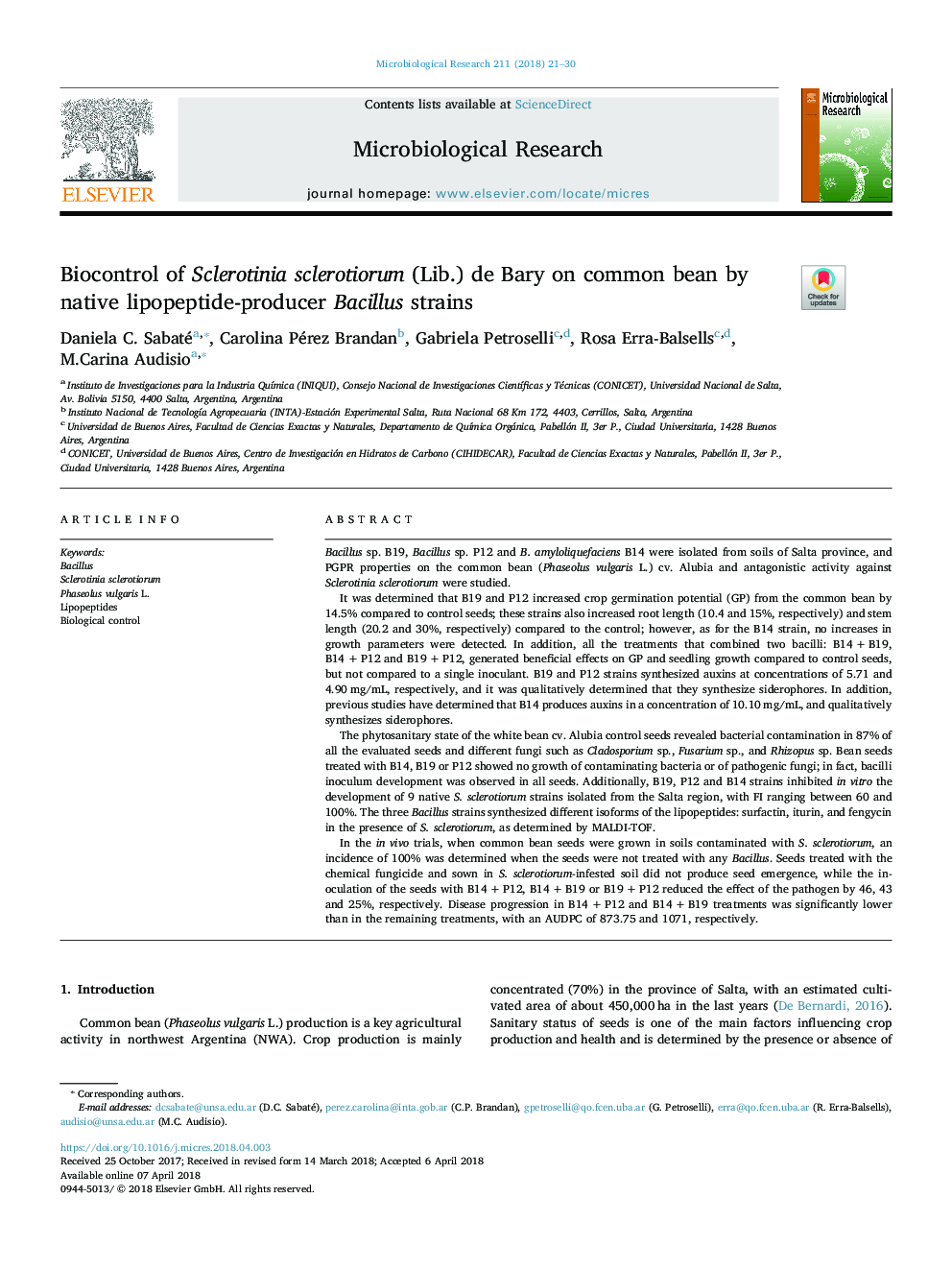| Article ID | Journal | Published Year | Pages | File Type |
|---|---|---|---|---|
| 8422864 | Microbiological Research | 2018 | 10 Pages |
Abstract
In the in vivo trials, when common bean seeds were grown in soils contaminated with S. sclerotiorum, an incidence of 100% was determined when the seeds were not treated with any Bacillus. Seeds treated with the chemical fungicide and sown in S. sclerotiorum-infested soil did not produce seed emergence, while the inoculation of the seeds with B14â+âP12, B14â+âB19 or B19â+âP12 reduced the effect of the pathogen by 46, 43 and 25%, respectively. Disease progression in B14â+âP12 and B14â+âB19 treatments was significantly lower than in the remaining treatments, with an AUDPC of 873.75 and 1071, respectively.
Related Topics
Life Sciences
Biochemistry, Genetics and Molecular Biology
Biotechnology
Authors
Daniela C. Sabaté, Carolina Pérez Brandan, Gabriela Petroselli, Rosa Erra-Balsells, M.Carina Audisio,
